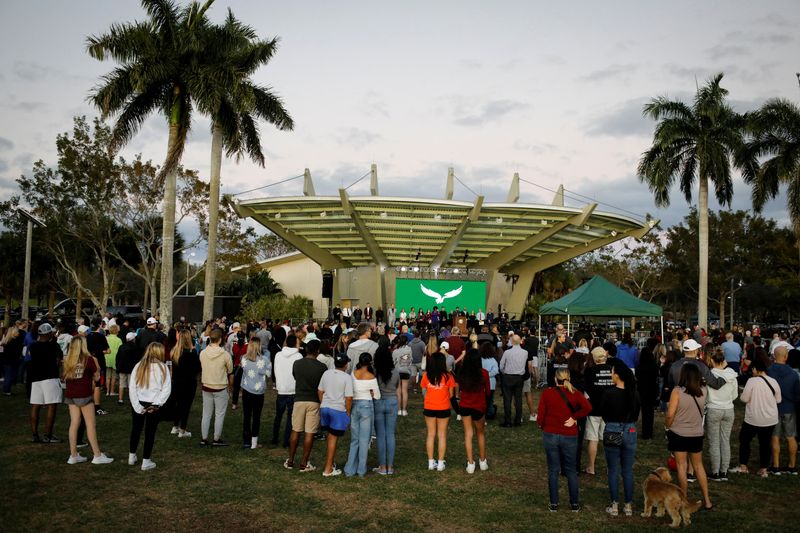By Brendan Pierson
(Reuters) - A U.S. appeals court on Thursday upheld a Florida law barring people under age 21 from buying a gun, rejecting a challenge by the National Rifle Association gun rights lobby group.
A unanimous three-judge panel of the Atlanta-based 11th U.S. Circuit Court of Appeals found that the law was in line with the historical tradition of gun regulation in the United States, meeting a new standard for gun control laws set by the U.S. Supreme Court last year.
Florida passed the law in 2018 with bipartisan support three weeks after one of the state's deadliest mass shootings in which a 19-year-old gunman killed 14 students and three faculty members at Marjory Stoneman Douglas High School in Parkland.
Current Florida Governor Ron DeSantis, a Republican, said at the time that he opposed the law. Two Republican state lawmakers have introduced a measure to lower the age to 18, as it was previously. A spokesperson for Florida Attorney General Ashley Moody said that his office had the duty to defend the law, but noted that the measure would be reconsidered by the legislature.
The NRA sued to challenge the law, arguing that it violated the right to keep and bear arms under the U.S. Constitution's Second Amendment by barring adults from buying any kind of gun. Federal law already imposes a 21-year age requirement for handguns.
A federal judge in 2021 upheld the law, finding it was a kind of "longstanding" restriction that courts had upheld in the past. While the NRA was appealing, the U.S. Supreme Court issued its 2022 ruling in a case in which the justices struck down a New York state gun law and found that any gun control measure must be consistent with the nation's historical tradition to be constitutional.
The 11th Circuit panel decided on Thursday that this one was, pointing to more than a dozen 19th century state laws barring people under 21 from buying guns.
Judge Robin Rosenbaum, who wrote the ruling, said that while those laws did not go back to the nation's founding, they were relevant because they were passed around the time that the Constitution's 14th Amendment was adopted, which extended the Second Amendment to state laws.
Two of judges on the panel were appointed by Democratic presidents and one by a Republican.

The NRA did not immediately respond to requests for comment.
In the United States, Democrats generally support gun control measures while Republicans often oppose them.